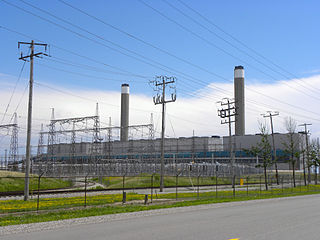March 5th, 2018
BURLINGTON, ON
Keeping ourselves healthy is important. Part of that involves getting well again should we get sick. Enter single payer health insurance – the only efficient way to deliver health care. John Robarts gave us OHIP back in the late sixties with a little help from the federal government. Then Bill Davis added a senior’s drug plan in 1972.
 Last year the Kathleen Wynne government introduced OHIP+, a pharmacare program to ensure that no child got left behind because of affordability. And that perhaps prompted the federal Liberals to decide the time was right for a national universal plan. In any case it was an obvious choice for Mr. Trudeau to ask Ontario’s health minister, Eric Hoskins, to head up a consultative process with the provinces, territories, health experts and communities on how best to proceed.
Last year the Kathleen Wynne government introduced OHIP+, a pharmacare program to ensure that no child got left behind because of affordability. And that perhaps prompted the federal Liberals to decide the time was right for a national universal plan. In any case it was an obvious choice for Mr. Trudeau to ask Ontario’s health minister, Eric Hoskins, to head up a consultative process with the provinces, territories, health experts and communities on how best to proceed.
Canadians have one of the better health care systems anywhere, and it will only get better with the addition of a single payer drug plan. Oh sure Americans like to talk about our waiting lists for elective surgery, but at least all residents here have access to care. And if we were to double our health budget, the equivalent of what Americans pay per capita, those waiting lines would be a lot shorter. But most importantly, we sail past the US when it comes to health outcomes. We have lower infant mortality, are generally healthier and we outlive them.
The Liberal government in Ontario started to phase out dirty coal electricity plants soon after coming to power in the early 2000s. Between 2006 and 2015 smog-causing nitrogen dioxide emissions dropped by 32 per cent, sulphur dioxide by 48 per cent, carbon monoxide by 53 per cent, and fine particulate matter by 25 per cent. Despite population growth and an increase in the number of motor vehicles on Ontario’s roadways, the air above our cities, like Toronto, is cleaner than we’ve seen in our lifetimes.
According to the Ministry of Environment…“There were no smog advisories issued in 2015, compared with 2005 when there were 53 smog days. Based on the Air Quality Health Index, the province’s air quality was rated in the low risk category for 90 per cent of the year in 2015.”
And Ontario’s carbon ‘cap-and-trade’ system, which started last year, will continue to deliver that kind of good news.
The province estimates that improved air quality is saving over $4 billion annually in health care costs. But then the provincial auditor general estimates that moving to green energy has cost almost forty billion over the past decade or so. That would be a wash – except that these are all mostly hypothetical numbers, the kind accountants and economists like to fiddle with as they make their political arguments. What matters most is whether our quality of life has improved and whether we can afford this improvement in air quality in the face of increases we’ve seen in the cost of hydro.

Smoking in public is getting harder and harder to do – unfortunately it is the younger people taking up the habit.
The Liberal government also fought an uphill battle banning smoking in public places and restricting toxic lawn pesticides. We all understand the health benefits of not smoking, though pesticides are less well understood when it comes to their relationship to diseases like asthma and cancer. But a recent Conference Board report recognizes Ontario with the lowest rate of respiratory mortality in Canada, despite having the most concentrated population.
OHIP+ is estimated to cost roughly half a billion dollars a year. And the province claims to be running a balanced budget even without the kind of without additional federal finding we might expect coming out of the new federal initiative. The provincial NDP have yet to release their election platform though Andrea Horwath, supportive of OHIP+, has mused about implementing a universal program.
None of the PC leadership contenders have committed to continuing the OHIP+ program, let alone any expansion of it. The platform passed by the party last November does speak to continuation of the Liberal initiated program, but the candidates have been careful to avoid adopting a platform which also contains plans for a $4 billion dollar carbon tax.
That is troubling on a number of fronts, particularly since at least a couple of the candidates have talked about also killing the cap-and-trade program which reduces other air borne pollutants associated with the combustion of fossil fuels in addition to CO2. In fact the preoccupation of the these candidates is with the conflicting goals of tax cuts and debt reduction.

The current cap and trade CO2 emissions program pumps tens of millions into the provincial economy. If cancelled where would funds for health care come from?
And that means that money will need to be found elsewhere to satisfy these goals, most likely in the most expensive part of the budget – health care. There already was a financial hole in the Patrick Brown platform – right smack dab in health care. So it would not be unrealistic to expect Ontario to opt out of any national universal pharmacare program should the PC’s win the election later this year, and maybe even shelve OHIP+.
It’s politics too, as we witnessed by the confrontational attitudes permeating the last PC candidates debate. Why would a Tory government in Ontario agree to anything a Liberal federal government wants to do. Even if, in the case of a carbon tax, the money stays in the province. In Brown’s platform the money would have been returned in lower income tax rates for the middle classes – revenue neutral.

The Harris government took millions and millions out of education and health care – it took decades to restore those services.
We have seen this movie before. It was the late ‘90s and Ontario took Mike Harris at his word, having come to office with a promise not to touch health care, and then desperately looking at the health budget to pay for his income tax cuts. He closed hospitals, fired nurses, and threw the entire system into chaos.
Ontario moved to the back of the line in health care, owning the longest surgery wait times in Canada. Gurneys stacked up in hospital corridors as we watched our loved ones suffer in despair. Heart patients were literally dying waiting for surgery and cancer patients had to be bused to Buffalo for radiation treatment. Let us never go back to those days.
 Ray Rivers writes weekly on both federal and provincial politics, applying his more than 25 years as a federal bureaucrat to his thinking. Rivers was once a candidate for provincial office in Burlington. He was the founder of the Burlington citizen committee on sustainability at a time when climate warming was a hotly debated subject. Tweet @rayzrivers
Ray Rivers writes weekly on both federal and provincial politics, applying his more than 25 years as a federal bureaucrat to his thinking. Rivers was once a candidate for provincial office in Burlington. He was the founder of the Burlington citizen committee on sustainability at a time when climate warming was a hotly debated subject. Tweet @rayzrivers
Background links:
Health Report Card – Canada’s Rank – Cost Effective Care –
OHIP+ Details – Hoskins – Ontario’s Plans – Conference Board –
Ontario Climate Change – Canada vs USA – OHIP+ –





















James Smith;
That’s Ms to you.
Sorry, but the UK and the all the best Healthcare systems in the world are Mixed payer in that there is both Private and Public domains.
Furthermore, I will always believe the OECD over that of the rhetorical emesis being spewed forth by the politicians in power du jour. Follow the facts and not Political headlines or their spin-doctoring. Canada is almost always better than the USA but never breeches the upper echelon of the Mixed payer countries in the OECD performance indicators of consequence. Sorry again.
Canada is a social democracy and not a communist state (I know you know this). Canada’s Healthcare system was Fathered by the Hon Tommy Douglas (NDP) who envisioned a Mixed system and not the sole-payer system that we have today. This system is run by both the Federal and Provincial gov’t and paid for by individual and corporation taxes. An average Canadian family consisting of two adults and two children (earning approximately $119,082) will pay about $11,735 for public health care insurance. So, truly not free Healthcare.
The Canadian Health system does not include dental, prescription drugs, cosmetic surgeries, etc. Though many non-self employed individuals (especially civil servants) have benefits that may cover some of the costs. Hey, I wonder whatever happened to Premier McGuinty’s Healthcare Premium which raises 2.5billion dollars per year…do you think it went into Healthcare. Just saying.
https://www.auditor.on.ca/en/content/news/15_presentations/2015AR%20presentation%203.08%20LHINs.pdf
See page 5 (above) where the AG states that the average LHIN has only met 6 of 15 performance indicators in 2014/15 and that the MOH does not hold their LHIN minions accountable. Remember, the LHINs have been in existence since 2007 with failing grades. You and I would be fired if we had performance evaluations like this (well in Cuba, no one is really fired, they just vanish).
I will let you look up the plethora of data on administration costs of the LHINs, their benefit and severance packages as it makes for interesting reading and giggling.
What you don’t understand is that the LHINs are a stop-gap for their deity the MOH. It has always been Centrally driven and controlled and never local. LHINs are a visage to act as a buffer for the bureaucrats in the MOH. LHINs in turn, have become another bureaucratic nightmare that is a blackhole of money which no longer goes to the front line Medicare system where it belongs. This ‘mega-bureaucratic system’ has grown exponentially because of LHINs.
Le deseo salud y prosperidad, el camarada
Man, are you wrong on Healthcare.
Please review the OECD and CIHI which compares the top 17 developed countries healthcare matrics. Canada always beats the USA but is always in the bottom of the 17 countries. ALWAYS!! The political elite politicians in power praise the Canadian Healthcare system when they know it is failing at every level including cost. Why do you think the politicians are pushing for MAID.
Best healthcare in the world is a mixed healthcare. Only Korean (north) and Cuba have sole source payer healthcare systems like Canada’s. Quit comparing to the USA. No one wants their system.
The LHINs are a cost to the Ontario tax payers. 100s of millions per year and are nothing but sound-bites for the MOH. They have little to do with their local regions and have accomplished next to nothing with failing grades on their own matrics as per multiple studies. Alberta tried them and quickly scrapped them. Maybe we should go back to dozens of local board of education offices like in the 1990s?? Pay their contracted severance packages and get rid of them. Put the onus back on the politicians and the ministry of the Health instead of their liberal non-healthcare cronies who sit on the LHINs.
Respectfully Mr (Ms?) Duck you’re not looking at the whole picture nor are your correct in saying Canada as the only OECD single payer system. Have you ever heard of the NHS in the UK for example? Far from a communist system Canada has a PRIVATE FOR PROFIT regulated system. If one actually reviews the OECD & CIHI reports Canada does better than many countries on some areas of Health outcomes. Canada’s failure is generally the result of 1) The cost of prescription drugs & what cost does to availability of these drugs 2) Lack of universal dental care 3) A For Profit system paid for by the state. I suspect the cost of a private ambulance system also likely adds to costs.
As for LHINs, it seems that you’d like to go back to to failed, top down, one size fits all state managed mega bureaucratic system that’s found in a large Spanish speaking caribbean island you seem to familiar with. Curious that.
In mentioning the Harris Government and the Health Care System back in the late 90’s with gurneys stacked up in hospital corridors, well a month ago my Mom was taken by ambulance to the new Jo Brant Hospital only to be lined up with 7 other gurneys in the ambulatory hallway for over 2 hours. There was no nurse in that section so 2 EMS employees from each ambulance had to stay with the patient until there was room in one of the 12 emergency cubicles in the hospital section. It was then another 2 hours before a Doctor came in that area. Apparently the whole hospital is not open due to lack of funding. I was shocked that this line up of gurneys in the hallway hadn’t changed from what we were all told would, with the new and spacious hospital. As to whether Health Care is meeting our needs today and if a change of Government would make a difference, I say NO, if there is no money, or not put in the right places, nothing will change!
Steve, I think you’ll find Canada has a Private Health Care System that is partially regulated with all “insured” payments made by one payer, ie, provincial governments. I would argue that Canada should move to a more Public system that includes far more things like some dental, eye glasses, prescription drugs & mobility devices. I say this as a designer who makes much of my living working for Private health care providers.
I would suggest that the waste that I see in my design practice & that you’re referring to is a result of the regulated private system we have now that has Dr’s & Dentists running private practies. A fully public system would reduce waste, duplication and cut costs dramatically. Let the private sector do breast implants & nose jobs make the rest of the health care sector morph into something similar to education; public servants delivering a public good.
Rather like my apparently U.S. colleague, I too wonder what machinations we’d ponder to, let’s call it, host an invasion. At any rate, I surrender, knowing I speak for at least a few tens of millions.
While still studying in the current Jacobin a moderate-length piece by two principals with the Physicians for a National Health Program who urge a slightly more radical version of single-payer (nah, not the more conservative Medicare-for-all), I’m buoyed that your single-payer system does set a standard that we “southerners” ought to envy if not strive to perfect.
Too learning more about the major progress on air pollution made up north, I see my brother and family just outside Buffalo reaping collateral benefits. For that we Boyds are grateful.
Thank you, Ray, for that bright light.
Bill
great points here and if i am hearing correctly Doug Ford is a climate change denier so who knows what all he will reverse for the worse.
I will admit the PCs have done some pretty bizarre things lately, but even I don’t suspect they would be so stupid as to tamper with OHIP or reduce public funding for health care.
There are an increasing number of seniors in Ontario, and like it or not, they form a very strong and vocal element within the PC Party. Holy hell would descend on the head of the next PC leader if he/she ever advocated cutting back on improvements to emergency room wait times, pharmacare for young people, etc. What the PC Party should be focusing on is getting rid of the unbelievable waste in the health care system. Sorry, but these “feel good” television ads that the Ministry of Health keeps rolling out with pictures of happy Boomers taken thirty years ago and admonitions to take care of ourselves are both silly and wasteful. Yes, the Liberals have made some progress in improving aspects of health care (e.g. cutting back on coal fire generating plants), but seriously, how many times outside of an election year do the taxpayers need to reminded about it, and at what cost?
Addressing health care improvements requires some imagination and creativity. It also requires that public policy analysts and healthcare advocates temporarily suspend judgement and at least investigate other jurisdictions for unique ideas and concepts that could be incorporated, in whole or in part, into Ontario. For instance, the Netherlands has private health care but it has also made great use of integrated home care physicians and teams of nurses to look after the elderly. Wait times there are much lower than in Canada. There may be elements that can be applied without necessarily adopting a private health care model.
Health care is indeed an important public service but it doesn’t necessarily need to be provided in a “bricks and mortar” structure or through traditional channels if it can be offered simply, more effectively and less expensively in a patient’s home or via new technology.
My opinion: I agree that the PCs should focus on cutting the waste in the health system, and by that I mean the excessively top-heavy structures that are supposed to manage it.
The 14 LHINs should be the first to go: give the Deputy Minister of Health 14 Assistants, each with responsibility for a former LHIN territory, so that decisions can be made at the top level, where they belong. That should get rid of 14 bureaucracies, each with a Board of directors, a CEO/Executive Director, staff, offices, etc.
Then look at some of these bloated empire-like organizations, like HHS, for example, with a CEO, a President for every building, and a very large number of vice presidents. Let’s call them “Managers” instead, and pay them according to the value of their actual contributions to the success of the organization.
After that, do the same kind of restructuring with the many other very expensive government agencies; e.g., Hydro, with its many government agencies, seems to be afflicted with much redundancy and consolidation potential…..
Hans, At one of Mayor Goldring’s first events Globe & Mail’s health reporter André Picard spoke about health care in Canada. His talk was very good & he relates statistics that reveal that the most efficient systems in delivering Health Care in Western Europe & indeed in Canada are those who serve appropriately one Million people. LHINs for all their teething pains serve; about a million people and are becoming more efficient. If you got your wish, between winding up LHINs and recreating them (because like it or not, you’d have to manage these systems) would cost more billions than you can ever imagine not to mention the disruption to systems.
Take just one example: Who for example is going to manage what people get long term care? The private sector? We have a system that needs more resources & the one way to do this is to get rid of as much private sector service. Profit is what drives health costs up.
Warren Buffett would certainly agree with you, Hans. Quote: “our experience has been that the manager of an already high-cost operation is uncommonly resourceful in finding new ways to add overhead”. I have heard this referred to as “head-office disease” and it certainly applies to government bureaucracies especially when the financing model is more tax dollars.
Good points Ray (& I know first hand that you warned folks of the danger that the ’90’s Tory plan that came to pass contained). The good folks of Burlie would be well to remember what the last Tory administration did to the health outcomes in the province & at Jo Brant specifically. Despite having a Provincial cabinet minister Jo Brant almost closed, was at one time one of the worst Hospitals in NORTH AMERICA for C.difficile infection. Many can speak of the shabby conditions – my son was told his arm was “strained” – 10 hours later at a “REAL” hospital without an Xray he was told “That’s broken we need to get you for an X-ray to see how badly”. People in Burlie should compare and contrast Jo Brant when considering who to vote for.
Dear Canada. Would you mind please invading the United States? The pay-off will not be as lucrative as some might imagine, but you will accrue good Karma for generations to come. Thank you for your consideration.